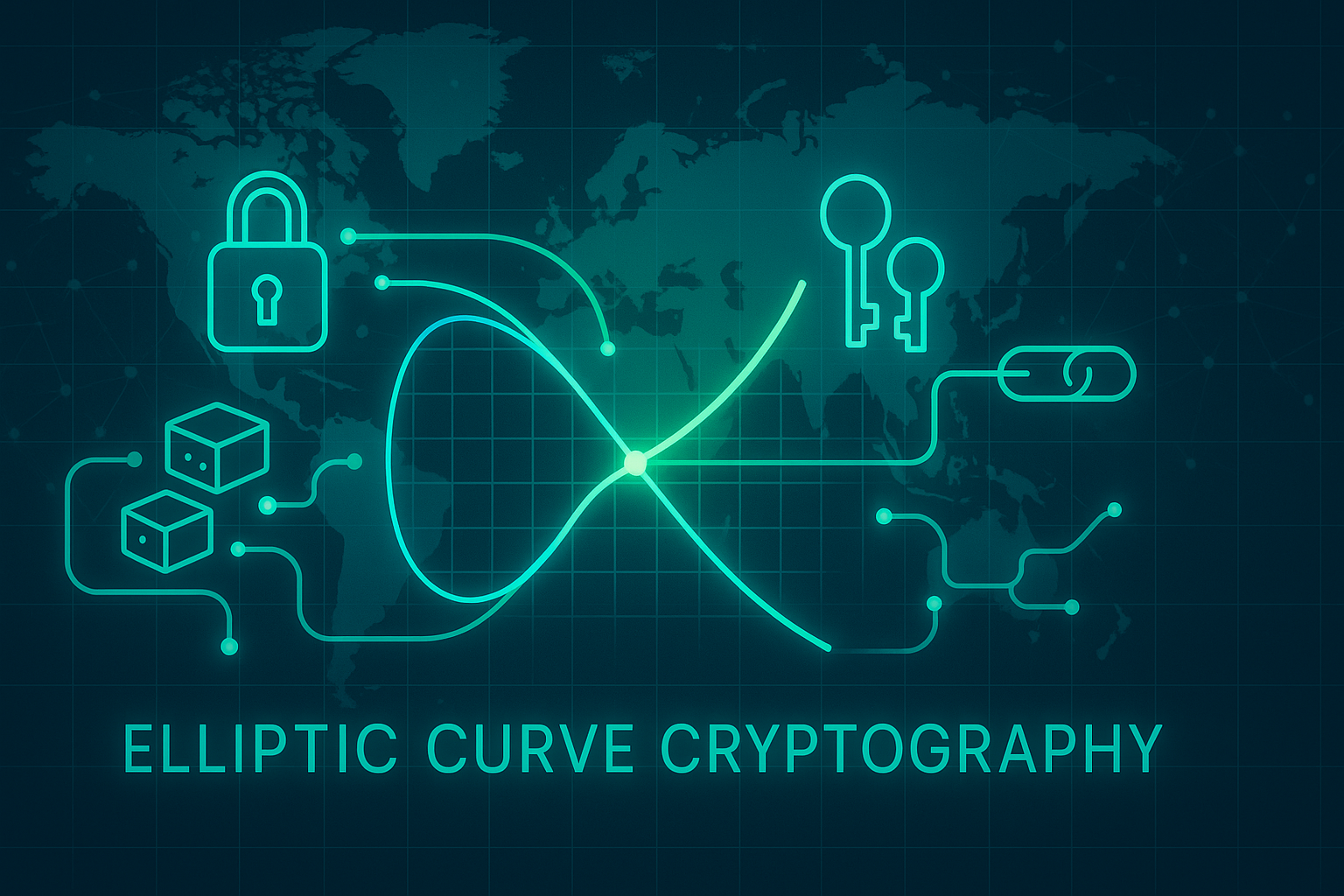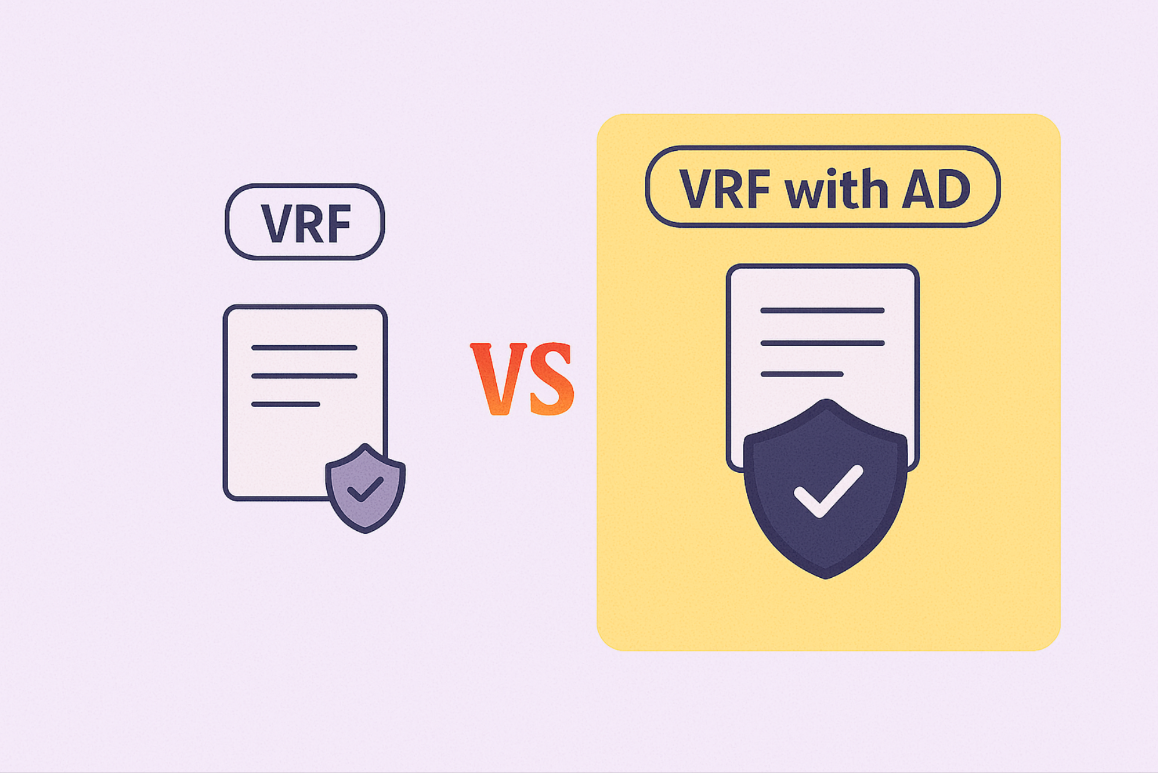Top Web3 Trends to Watch in 2025

Prasad Kumkar
CEO

The Evolving Web3 Landscape in 2025#
As we progress through 2025, Web3 technologies are rapidly transitioning from experimental concepts to mainstream business applications. The global Web3 market is experiencing unprecedented growth, projected to reach a staggering $87.09 billion by 2030 from $10.43 billion in 2023, representing an annual growth rate of 35.4%2. This exponential trajectory signals a fundamental shift in how businesses operate, interact with customers, and create value.
The past few years have witnessed Web3 evolving beyond speculative cryptocurrency trading into a transformative force across multiple industries. Today, major corporations like Wipro have successfully implemented blockchain solutions to enhance supply chain visibility and efficiency2. Governments worldwide are actively exploring blockchain applications for improved public services, and the concept of decentralization is reshaping traditional business models across sectors.
For forward-thinking businesses, understanding these emerging trends isn't merely an academic exercise—it's a strategic imperative. As Web3 transitions from niche adoption to mainstream acceptance in 2025, organizations that recognize and adapt to these developments will secure competitive advantages in efficiency, security, customer trust, and innovative business models.
Green Blockchain Solutions: Sustainability Takes Center Stage#
The Rise of Eco-Friendly Blockchain#
As environmental concerns grow across industries, 2025 has witnessed sustainability becoming a central focus in the Web3 space. Energy-efficient blockchain solutions are no longer optional but essential as regulations tighten and market demands shift toward environmentally responsible technologies1. This trend represents a direct response to past criticisms of high energy consumption in traditional proof-of-work (PoW) blockchain systems.
The push for carbon-neutral blockchain networks has accelerated dramatically, with Ethereum's transition to proof-of-stake (PoS) setting a precedent for the industry. Projects like Algorand and Chia have gained significant traction by emphasizing their eco-friendly consensus mechanisms1. This shift isn't merely technical—it reflects a broader realignment of blockchain technology with global sustainability goals.
Business Implications#
For businesses implementing or planning Web3 initiatives, the implications are significant:
- Regulatory Compliance: As environmental regulations become more stringent, adopting green blockchain solutions helps prevent future compliance issues and potential penalties.
- Brand Reputation: Consumers increasingly favor environmentally responsible businesses. Implementing sustainable blockchain solutions can enhance brand perception and customer loyalty.
- Operational Efficiency: Many green blockchain alternatives offer reduced operational costs compared to energy-intensive solutions, providing both environmental and financial benefits.
- Investment Appeal: Sustainable blockchain initiatives are more attractive to ESG-focused investors, potentially opening new funding opportunities for your business.
Companies can capitalize on this trend by conducting energy audits of existing blockchain implementations, exploring migration to PoS or other energy-efficient consensus mechanisms, and prominently communicating sustainability commitments in marketing materials. This approach not only addresses environmental concerns but also positions your business advantageously in an increasingly eco-conscious market.
Blockchain-Powered Dispute Resolution#
Transforming Conflict Management#
In 2025, one of the most practical and immediately valuable applications of Web3 technology is emerging in dispute resolution. Traditional dispute resolution processes are notoriously slow, expensive, and often inaccessible. Blockchain-powered alternatives are providing faster, more cost-effective, and inherently trustless arbitration mechanisms1.
This trend is particularly relevant for businesses operating in real estate, supply chain management, and decentralized finance (DeFi) lending—sectors where disputes can significantly impact operations and customer relationships. Projects like Kleros and Aragon Court have demonstrated the viability of using blockchain for automated dispute settlements, establishing new paradigms for conflict resolution1.
Business Applications#
The business applications of blockchain-powered dispute resolution extend across industries:
- Smart Contract Enforcement: Automated resolution of disputes arising from smart contract execution, reducing the need for costly legal intervention.
- Supply Chain Disputes: Quick resolution of disagreements between suppliers, manufacturers, and distributors regarding quality, delivery timing, or payment terms.
- Customer Complaint Resolution: Transparent, immutable records of customer interactions and complaint handling processes that build trust and demonstrate fairness.
- Cross-Border Transactions: Neutral dispute resolution mechanisms that operate independently of any single country's legal system, facilitating international business.
While legal recognition remains a hurdle in some jurisdictions, the integration of AI with on-chain dispute resolution is creating sophisticated systems capable of handling complex cases with minimal human intervention1. Businesses that implement these systems can expect reduced legal costs, faster dispute resolution timeframes, and improved stakeholder relationships.
Central Bank Digital Currencies (CBDCs) Reshape Financial Infrastructure#
The Institutional Blockchain Revolution#
Perhaps no trend better illustrates the mainstreaming of blockchain technology than the accelerated development of Central Bank Digital Currencies (CBDCs) in 2025. Governments worldwide are actively pursuing digital versions of their national currencies, marking a significant shift as blockchain technology integrates with traditional financial systems1.
This development is particularly noteworthy given increasing regulations around stablecoins and private cryptocurrencies. Governments see CBDCs as a way to maintain financial control while enhancing cross-border payments and domestic financial accessibility. Countries like China with the Digital Yuan and the European Union with the Digital Euro are leading implementation efforts1.
Impact on Business Operations#
For businesses, the proliferation of CBDCs represents both opportunities and strategic considerations:
- Payment Infrastructure: Businesses will need to update payment systems to accommodate CBDC transactions, potentially requiring significant technical adjustments.
- Cross-Border Efficiency: CBDCs promise to dramatically reduce the cost and time required for international transactions, benefiting businesses with global operations or supply chains.
- Programmable Money: Unlike traditional currencies, CBDCs can be programmed with specific conditions or "smart contracts," enabling automatic tax payments, conditional transfers, or time-bound transactions.
- Financial Inclusion: By reducing dependency on traditional banking infrastructure, CBDCs can help businesses reach previously underserved markets and customer segments.
However, this trend also raises valid concerns around privacy and centralization that may drive demand for decentralized finance (DeFi) alternatives1. Forward-thinking businesses should prepare for CBDC integration while also exploring complementary decentralized financial solutions that offer greater privacy protections or specialized functionality.
Decentralized Identities (DID) Gain Mainstream Adoption#
The Self-Sovereign Identity Revolution#
As privacy concerns continue to intensify, 2025 has seen decentralized identity (DID) solutions move from niche applications to mainstream adoption. These systems fundamentally reimagine digital identity by giving individuals control over their personal information rather than relying on centralized identity providers1.
This shift addresses growing public awareness of data breaches, surveillance capitalism, and the problems inherent in having personal information scattered across numerous corporate databases. Leading this transformation are projects like Microsoft's ION (built on Bitcoin) and Polygon ID, which are pioneering DID verification frameworks1.
Strategic Business Value#
For businesses, decentralized identity offers multiple strategic advantages:
- Reduced Liability: By minimizing the personal data stored on corporate servers, businesses can significantly reduce their exposure to data breach liabilities and compliance requirements.
- Enhanced Authentication: DIDs enable more secure and seamless user authentication processes without password vulnerabilities or complex management systems.
- Streamlined KYC/AML: Financial services and regulated industries can benefit from more efficient, portable KYC processes that reduce onboarding friction while maintaining compliance
- Customer Data Relationships: Businesses can build more transparent relationships with customers around data usage, potentially increasing trust and loyalty.
While interoperability remains a challenge1, organizations that invest in DID technologies now will be positioned advantageously as these systems become standard components of digital interactions. Early adoption allows businesses to shape implementation in ways that balance privacy requirements with operational needs.
The Rise of Decentralized AI#
Intelligence Without Centralized Control#
The integration of artificial intelligence with blockchain technology represents one of 2025's most transformative Web3 trends. Decentralized AI is shifting control away from centralized tech giants toward distributed networks where data ownership and model governance are shared among participants1.
This combination addresses critical concerns about AI development, including data monopolization, algorithmic bias, and lack of transparency. AI models built on decentralized data networks improve transparency and prevent single points of failure, creating more robust and accountable systems1.
Business Applications and Opportunities#
For businesses, decentralized AI offers unique capabilities and competitive advantages:
- Collaborative AI Development: Access to larger, more diverse datasets through decentralized data marketplaces, improving AI model performance without compromising data privacy.
- Transparent Decision-Making: Immutable records of AI decision processes that create accountability and auditability—essential for regulated industries and sensitive applications.
- Monetization of Data Assets: New revenue streams through secure sharing of proprietary data for AI training while maintaining ownership and control.
- Reduced Vendor Lock-in: Decreased dependency on proprietary AI platforms through open, interoperable models and datasets.
Projects like SingularityNET and Ocean Protocol are pioneering decentralized AI marketplaces that enable innovation in trustless environments1. Despite challenges around computational requirements, businesses that explore these technologies now can establish early advantages in what promises to be a fundamental shift in how AI systems are built and deployed.
Mass Adoption of Decentralized Applications (dApps)#
Beyond Niche Use Cases#
In 2025, decentralized applications (dApps) are finally breaking beyond early adopter communities to achieve significant mainstream traction. This expansion is particularly evident in gaming, social media, and financial services, where blockchain technology provides tangible benefits in user ownership, transparency, and functionality3.
Early pioneers like Axie Infinity and Lens Protocol established proof of concept, but the current wave of adoption is driven by dramatically improved user experiences, higher performance blockchains, and applications that solve genuine problems rather than merely showcasing the technology3.
Business Integration Strategies#
For businesses considering dApp integration, several approaches offer strategic value:
- Loyalty and Engagement Programs: Tokenized reward systems that provide customers with actual ownership and transferability of earned benefits.
- Community Building: Decentralized social platforms that give communities greater control and continuity independent of any single company's policies.
- Digital Asset Marketplaces: Platforms for creating, trading, and utilizing digital assets with verifiable scarcity and provenance.
- Financial Services: Payment, lending, and investment applications that operate with reduced overhead and increased accessibility.
Successful implementation requires focusing on genuine user benefits rather than technological novelty. The most effective dApps in 2025 are those that make blockchain's advantages accessible without requiring users to understand the underlying technology.
Sectoral Applications: How Web3 is Transforming Industries#
Agriculture and Supply Chain Revolution#
Agriculture has emerged as a surprising beneficiary of Web3 technologies in 2025. Blockchain implementation is enhancing traceability and accountability throughout the agricultural cycle, ensuring quality and safety in the food supply chain2. For agricultural businesses, this translates to:
- Product Authentication: Verifiable records of organic certification, sustainable practices, and product origin.
- Supply Chain Visibility: Complete visibility from farm to table that reduces waste and improves inventory management.
- Automated Settlements: Smart contracts that execute payments automatically when delivery conditions are met, improving cash flow.
- Consumer Transparency: Direct access for consumers to verify product claims through immutable supply chain records.
These applications are particularly valuable for premium and specialty agricultural products where authenticity and production methods directly impact value.
Education and Credentialing#
The education sector is undergoing significant transformation through Web3 technologies focusing on document verification, academic certificates, and professional credentialing2. These developments create new opportunities:
- Tamper-Proof Credentials: Immutable academic records that eliminate certificate fraud and simplify verification for employers.
- Portable Professional Qualifications: Blockchain-based professional certifications that individuals can easily carry and verify across borders and organizations.
- Micro-Credentialing: Recognition of specific skills and achievements through verifiable digital badges that provide more granular insight than traditional degrees.
- Educational Resource Sharing: Decentralized platforms for sharing and monetizing educational content directly between creators and learners.
Educational institutions and professional training organizations implementing these technologies gain competitive advantages in credential validation efficiency and international recognition.
Real Estate Transformation#
Real estate transactions are being revolutionized through property tokenization and smart contract implementation2. For real estate businesses, key developments include:
- Fractional Ownership: Tokenization enabling partial investment in properties previously too expensive for most investors.
- Streamlined Transactions: Automated processes reducing paperwork, eliminating redundant verifications, and accelerating closings.
- Transparent History: Immutable records of property history, maintenance, and modifications accessible to all potential buyers.
- Automated Rental Agreements: Smart contracts managing lease agreements, security deposits, and maintenance requests with minimal administration.
These innovations are creating new business models in real estate while reducing transaction costs and increasing market liquidity.
Implementation Strategy: Preparing Your Business for Web3 Adoption#
Assessment and Opportunity Identification#
Before diving into Web3 technologies, businesses should conduct a systematic assessment:
- Process Analysis: Identify which business processes could benefit most from transparency, automation, or disintermediation.
- Value Chain Mapping: Analyze your industry's value chain to identify potential blockchain applications that could disrupt or enhance existing relationships.
- Customer Journey Evaluation: Determine where Web3 technologies could improve customer experiences or create new value propositions.
- Technology Readiness Assessment: Evaluate your organization's technical capabilities and readiness for blockchain integration.
This methodical approach ensures investment is directed toward applications with genuine business value rather than being driven by technological fascination.
Talent and Knowledge Development#
Successfully implementing Web3 technologies requires specialized expertise:
- Team Education: Develop fundamental blockchain literacy across leadership and relevant technical teams.
- Strategic Hiring: Identify critical skills gaps and recruit talent with blockchain experience in your industry.
- Partnership Exploration: Identify potential technology partners with relevant Web3 implementation experience.
- Community Engagement: Join industry-specific blockchain consortia and working groups to share knowledge and best practices.
Organizations that build these capabilities now will have significant advantages as Web3 adoption accelerates through 2025 and beyond.
Regulatory Navigation#
The evolving regulatory landscape around blockchain technologies requires proactive attention:
- Jurisdictional Analysis: Understand how different regulatory frameworks impact your planned Web3 initiatives across all operating regions.
- Compliance Integration: Design Web3 implementations with built-in compliance mechanisms rather than treating regulation as an afterthought.
- Engagement with Regulators: Where appropriate, participate in regulatory sandboxes or dialogue with authorities to help shape balanced frameworks.
- Privacy by Design: Implement systems that respect user privacy while meeting legitimate compliance requirements.
This balanced approach helps mitigate regulatory risks while positioning your organization to adapt quickly as frameworks evolve.
Chainscore Labs: Your Partner in Web3 Transformation#
As Web3 technologies continue reshaping the business landscape in 2025, organizations need experienced partners to navigate this complex transition successfully. Chainscore Labs (chainscore.finance) has emerged as a leader in helping businesses implement practical, value-driven Web3 solutions across industries.
With deep expertise in blockchain architecture, smart contract development, and decentralized application design, Chainscore Labs offers comprehensive services tailored to your specific business objectives:
- Strategic Assessment: Evaluation of your business processes to identify high-value Web3 implementation opportunities.
- Technology Selection: Guidance on selecting the appropriate blockchain platforms and protocols for your specific use cases.
- Solution Development: Custom development of smart contracts, decentralized applications, and integration with existing systems.
- Security Auditing: Comprehensive review of blockchain implementations to ensure security, efficiency, and regulatory compliance.
- Training and Knowledge Transfer: Empowering your team with the skills and understanding needed to maintain and evolve your Web3 initiatives.
Unlike generic technology consultancies, Chainscore Labs specializes exclusively in blockchain technologies, bringing focused expertise and cutting-edge knowledge to every client engagement. Their team stays at the forefront of Web3 developments, ensuring your implementation incorporates the latest advancements and best practices.
Whether you're exploring initial blockchain applications or scaling existing Web3 initiatives, Chainscore Labs provides the technical expertise and strategic guidance needed to maximize return on investment while minimizing implementation risks.
Conclusion: Positioning Your Business for the Web3 Future#
As we navigate through 2025, Web3 technologies continue their transition from experimental concepts to essential business infrastructure. The trends outlined in this analysis—green blockchain solutions, decentralized dispute resolution, CBDCs, decentralized identities, AI integration, and widespread dApp adoption—represent both challenges and opportunities for forward-thinking organizations.
Businesses that approach Web3 strategically, focusing on specific problems these technologies can solve rather than implementation for its own sake, will gain significant competitive advantages. These include enhanced operational efficiency, new revenue models, improved security, and stronger customer relationships built on transparency and shared value creation.
The most successful organizations will be those that view Web3 not as a purely technical initiative but as a business transformation enabled by technology. This perspective ensures that implementation efforts align with core strategic objectives and deliver measurable value.
As you consider your organization's Web3 strategy, remember that early exploration and controlled experimentation often yield disproportionate advantages as technologies mature. The time to begin this journey is now, while the opportunity to shape how these technologies impact your industry remains open.
Ready to explore how Web3 can transform your business in 2025 and beyond? Contact Chainscore Labs today to schedule a consultation and develop your personalized Web3 roadmap.
Visit Chainscore.finance/services
Citations:
- https://rocknblock.io/blog/web3-market-trends-to-look-out-for
- https://primuspartners.in/docs/documents/Web3_Use_Cases%20to_Watch_Out_for_in_2025_15_FEB_2025_v4.3-compressed.pdf
- https://www.linkedin.com/pulse/web3-trends-watch-2025-adoption-innovations-ravi-chamria-cbyvc
- https://maticz.com/top-web3-trends
- https://www.scb10x.com/en/blog/watch-out-ai-web3-blockchain-trends-2025
- https://www.primuspartners.in/reports/web3-use-cases-to-watch-out-for-in-2025
- https://www.coindesk.com/opinion/2025/02/25/5-new-trends-in-generative-ai-that-web3-needs-to-be-ready-for
- https://maticz.com/web3-business-ideas

About Prasad Kumkar
CEO
Prasad Kumkar, a technology leader, founded Chainscore Labs to lead the Web3 revolution. With over 6+ years of experience, he excels at building and scaling engineering projects. As the Head of Web3 at Ignite Tournaments, he grew the team, leading to significant contributions in its growth, serving millions. He has a proven history of turning innovative ideas into successful products, as demonstrated by his role at Reax Finance, Tekika, and Telosx.
Continue Reading

From Bytes to Points: How Try-and-Increment and Elligator 2 Map to Curves
Learn how messages are mapped to elliptic curve points using Encode-to-Curve methods. This blog compares Try-and-Increment and Elligator 2, exploring their use in VRFs and cryptographic protocols.


The Cryptographic Foundation: Understanding Elliptic Curves in VRF-AD Implementation
Explore how elliptic curves form the backbone of VRF-AD, ensuring security, efficiency, and performance in cryptographic systems


Verifiable Randomness with Context: Understanding VRF with Additional Data (VRF-AD)
About VRF-AD, a cryptographic enhancement adding context to traditional VRFs. Covering VRF fundamentals, how additional data solves replay attacks and domain separation, and technical implementation.


How to Transition Your Business from Web2 to Web3: A Comprehensive Guide
Learn how to successfully migrate your business from Web2 to Web3 with this comprehensive guide covering benefits, challenges, implementation steps, and best practices for a competitive edge.


Smart Contracts Explained: Enhancing Security & Efficiency in Your Business
Discover how smart contracts can revolutionize your business operations with automated execution, enhanced security, and cost reduction while eliminating intermediaries—plus practical strategies.
